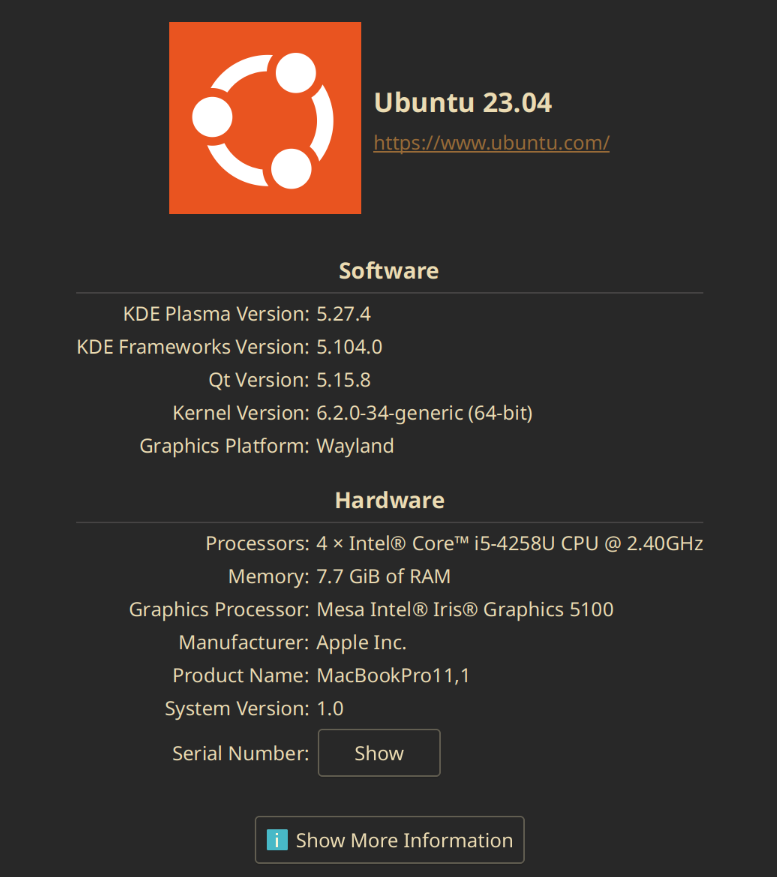Recently I had to return the laptop from my workplace, and was briefly left without a working laptop. Luckily (that’s what I thought at the time), we had a spare old 2013 macbook laying at home with an upgraded battery and a 256 GB SSD. The only problem was – it had MacOS installed. Now, I don’t really have a problem with using MacOS, in fact I had to daily-drive it for the past 8+ years, as most of the time I was using a work-issued laptop, which unsurprisingly ran MacOS. But this time I thought, wouldn’t it be fun to try and install a working Linux distro on this old macbook? I mean, it’s not like I have anything better to do on a weekend, right? What followed was a journey of pain, suffering, surfing 8 years old forum posts, with occasional glimpses of hope and joy, which made the entire experience worth it. Some of the problems I encountered were really Mac-hardware specific, while the others had to do with the rather early stage of Wayland protocol and the HiDPI support in general in Linux (worsened by the disinterest of corporate software developers in spending at least some time on making sure their product works on not-so-widely-used OS-s).


They actually had hi-res screens 10 years ago? Like I'm 2013? Resolution is 1600. That's pretty high for a 10 year old laptop
Yeah, I believe these were one the first retinas with 200+ ppi. Honestly, for a person who spends most of the time staring at a code or a text, hidpi is basically a necessity for me at this point. So the fact that slack or vscode had such a bad support for fractional scaling is a huge deal for me. (Wayland fixes this in some instances as I mentioned)
Oh, tell me about the hi dpi. I can't believing that 1080p is actually still a thing in 2023 on laptops. Especially on anything 15" or bigger. It looks like dogshit and I can see every single pixel. Everything in my house is 4K except my two work monitors, and they're 1080p. I can't stand them. I think 1080p is ok for gaming, but that's about it.